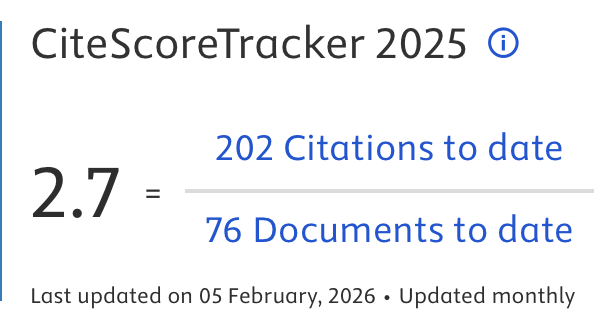METODE DAN CORAK TAFSÎR GHARÎB AL-MUWATTÂ’ KARYA ‘ABD AL-MÂLIK BIN HABÎB
DOI:
https://doi.org/10.14421/qh.2018.1901-04Keywords:
Tafsîr, Gharîb, al-Muwattâ’, ‘Abd al-Mâlik bin HabîbAbstract
This article discusses a review book of al-Muwattâ’ titled Tafsîr Gharîb al-Muwattâ’ by Abû Marwân ‘Abd al-Mâlik bin Habîb, an Andalusian Mâliki scholar who lived in the range 174-238 H. The discussion includes the author figure, the status of the book and the contents, systematics as well as the method. The reception of this book will also be discussed at the end of the writing. This book explains gharîb or abstruse words in al-Muwattâ’ both in a language and a fiqh explanation. Abû Marwân, has placed the scope of gharîb al-hadîth broader than usual. Unlike the other essay of Abû Marwân, al-Wadihah, Tafsîr Gharîb al-Muwattâ’ did not receive a positive response, because the contribution of this book is not too significant, other than because of carelessness in narration. Abû Marwân not only saw this gharîb from the linguistic aspect, but also from the fiqh aspect, so that it was not always the words described in gharîb language, but words or sentences that did need further explanation fiqh, even though the word is actually not gharîb linguistically. The advantage of this book lies in its method of being able to present a book that is practical, easy to understand and applicable, not long-winded.
Keyword: Tafsîr, Gharîb, al-Muwattâ’, ‘Abd al-Mâlik bin Habîb
References
Abd Allah, Umar Faruq. Malik’as Concept of ‘Amal in the Light of Maliki Legal Theory. disertasi-Chicago: Departement of Near Eastern Languages and Civilizations, 1978.
Anas, Mâlik bin. al-Muwat}t}a’. Mesir: Dâr al-Rayyân li al-Turas, 1988.
Andalusî (al), ‘Abd al-Mâlik bin H}abîb al-Sulamî. Tafsîr Gharîb al-Muwatta’. Riyâd: Maktabah al-‘Ubaikan, 2001.
Azami, Muhammad Mustafa. Studies in Hadith Methodology and Literature. Indianapolis: American Trust Publications, 1992.
Qard}awî (al), Yusûf. Fiqih Jihad: Sebuah Karya Monumental tentang Jihad menurut al-Qardhawi. Bandung: Mizan, 2010.
Dutton, Yasin. The Origin Of Islamic Law: The Qur'an, The Muwatta' And Madinan `Amal. Curzon Press: Richmond (UK), 1999.
Khatîb (al), Muh}ammad ‘Ajjâj. Ushul al-Hadits: Pokok-pokok Ilmu Hadits, terj. Qodirun Nur dan Ahmad Musyafiq. Jakarta: Gaya Media Pratama, 1998.
Hitti, Philip K.. History of the Arabs. terj. R. Cecep Lukman Hakim dan Dedi Riyadi. Jakarta: Serambi, 2010.
Ibrahim, Adebayo Rafiu. “A Thematic Study of Imam Malik’s al-Muwatta’ as a Book of Fiqh and Hadith”, dalam Hamdard Islamicus, Vol. XXVI, No. 4, 2003.
Suryadilaga, Muhammad Alfatih (ed.). Studi Kitab Hadis. Yogyakarta: Teras, 2003.
Saifullah, M. S. M., Hesham Azmy dan Muhammad Ghoniem. “On the Versions on Malik’s Muwatta” dalam http://www.islamic-awareness.org/Hadith/muwatta.html, akses tanggal 10 Desember 2010.
Sirry, Mun’im A. Sejarah Fiqih Islam: Sebuah Pengantar. Surabaya: Risalah Gusti, 1995.
Sulaymân, ‘Abd al-Rahmân. Muqaddimah Tafsîr Gharîb al-Muwatta, Riyâd: Maktabah al-‘Abikan, 2001.
Tahhan, Mahmud. Taysîr Mustalah al-Hadîs. Surabaya: al-Hidayah, 1985.
Downloads
Published
Issue
Section
License
Publishing your paper with Jurnal Studi Ilmu-ilmu al-Qur'an dan Hadis means that the author or authors retain the copyright in the paper. Jurnal Studi Ilmu-ilmu al-Qur'an dan Hadis uses license CC-BY-NC-ND or an equivalent license as the optimal license for the publication, distribution, use, and reuse of scholarly works. This license permits anyone to copy and redistribute the material in any medium or format and must give appropriate credit, provide a link to the license, and indicate if changes were made. If you remix, translate, transform or build upon the material you may use it for private use only and not for distribution. Jurnal Studi Ilmu-ilmu al-Qur'an dan Hadis granted an exclusive non-commercial reuse license by the author(s), but the author(s) are able to put the paper onto a website, distribute it to colleagues, give it to students, use it in your thesis, etc, so long as the use is not directed at a commercial advantage or toward private monetary gain. The author(s) can reuse the figures and tables and other information contained in their paper published by Jurnal Studi Ilmu-ilmu al-Qur'an dan Hadis in future papers or work without having to ask anyone for permission, provided that the figures, tables, or other information that is included in the new paper or work properly references the published paper as the source of the figures, tables or other information, and the new paper or work is not direct at a private monetary gain or commercial advantage.
Jurnal Studi Ilmu-ilmu al-Qur'an dan Hadis journal Open Acces articles are distrubuted under the Creative Commons Attribution-NonCommercial-NoDerivatives 4.0 International (CC BY-NC-ND 4.0). Article can be read, copy and redistribute the material ini any medium or format under the following conditions:
Attribution — You must give appropriate credit, provide a link to the license, and indicate if changes were made. You may do so in any reasonable manner, but not in any way that suggests the licensor endorses you or your use.
NonCommercial — You may not use the material for commercial purposes.
NoDerivatives — If you remix, transform, or build upon the material, you may not distribute the modified material.










